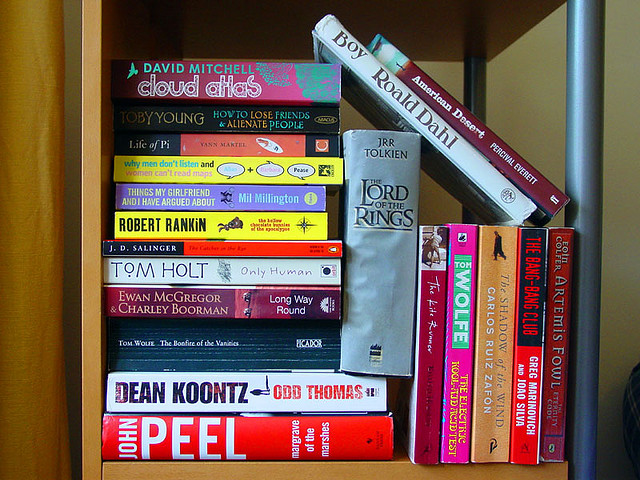How Contemporary Publishing Threatens Professional Writing
In a recent op-ed for the New York Times, Authors Guild President Scott Turow discussed the increasing depreciation of copyrights by heavy market players such as Google and Amazon.

Google, Turow writes, “is at odds with many writers because in 2004 it partnered with five major libraries to scan and digitize millions of in-copyright books, without permission from authors. Google says this is a 'fair use' of the works, an exception to copyright, because it shows only snippets of the books in response to each search. Of course, over the course of thousands of searches, Google is using the whole book and selling ads every time, while sharing none of the revenue with the author or publisher."
Amazon, meanwhile, may soon be able to resell e-books, making it imprudent to buy first hand e-books ever again. Such a move could allow Amazon to own the resale market, shifting profits away from both publishers and authors.
Turow also sheds light on a recent Supreme Court ruling that the buyers of foreign copyrighted works may resell them in the United States without the permission of the copyright holder, thus providng a way in which to sell a cheap import at a highly bargained price.
While these changes may go hand-in-hand with the times we live in, there is something deeply disturbing about them. As buyers of these books, we are incontestably saving dollars; however, our savings come at the cost of what could eventually be called some of the greatest works of our time, paving the way for a future where grand and universal narratives are replaced by small, local and insignificant ones due to a new and fashionable apparatus called self-publishing.
Since authors are losing income as sales shift to heavily discounted, pirated and devalued e-books, there may be no professional writers in the future. Established authors might be able to ensure a sufficient income through digital and print self-publishing, but these methods will not allow new writers to flourish. The days of the journeyman who makes a living out of writing seem to be over. The current market system is constructing ways for the future to be dominated by amateurs, at the risk of disrupting all forms of content.
In the coming years, there is a chance that some people might find success by self-publishing their work and proving themselves to small audiences, following the route of other artists who work their way up from small beginnings rather than hoping to gain recognition on their first attempt. However, most self-published books will get lost in the crowd, as the risk of being led astray and undiscovered due to the influx of continuous self-publication is high.
In his article for Salon, Hugh Howey uses the stories of authors like Jan Strnad, a 62-year old educator who earned over $11,000 off his self-published novels in 2012, and Rachel Schurig, who made over $100,000, to claim that those serious writers who self-publish their work year after year are finding real monetary success with their art.
What Howey fails to mention is that self-publishing is not about the quality of work, but rather the author’s ability to pay. Despite all of its shortcomings, mainstream publishers still pay to publish books by talented writers. The model of self-publishing, on the other hand, is still that of the writer paying someone else to produce the book, regardless of quality. Selling and fervently marketing a self-published book takes time, which costs money. Self-publishing is a return to the old model, in which books were circulated around a wealthy elite and to be a writer, one either had to be rich or to have rich connections. This model does not augur well for aspiring writers with fresh ideas but not many connections.
The reason why self-publishing is trendy today is because the old and vanishing road to literary success of writing ardently, attending workshops with other writers, writing a fancy letter to publishers and hoping that your book comes out and sits on a bookshelf for months has major flaws, always carrying the risk of the work being returned to the publisher and going out of print. In order to save big ideas and archive the greatest books of the 21st century, however, a revival of the old way of literary success is necessary, where talented authors are offered respectable copyrights and profitable packages.
Reach Contributor Nain Sethi here.



